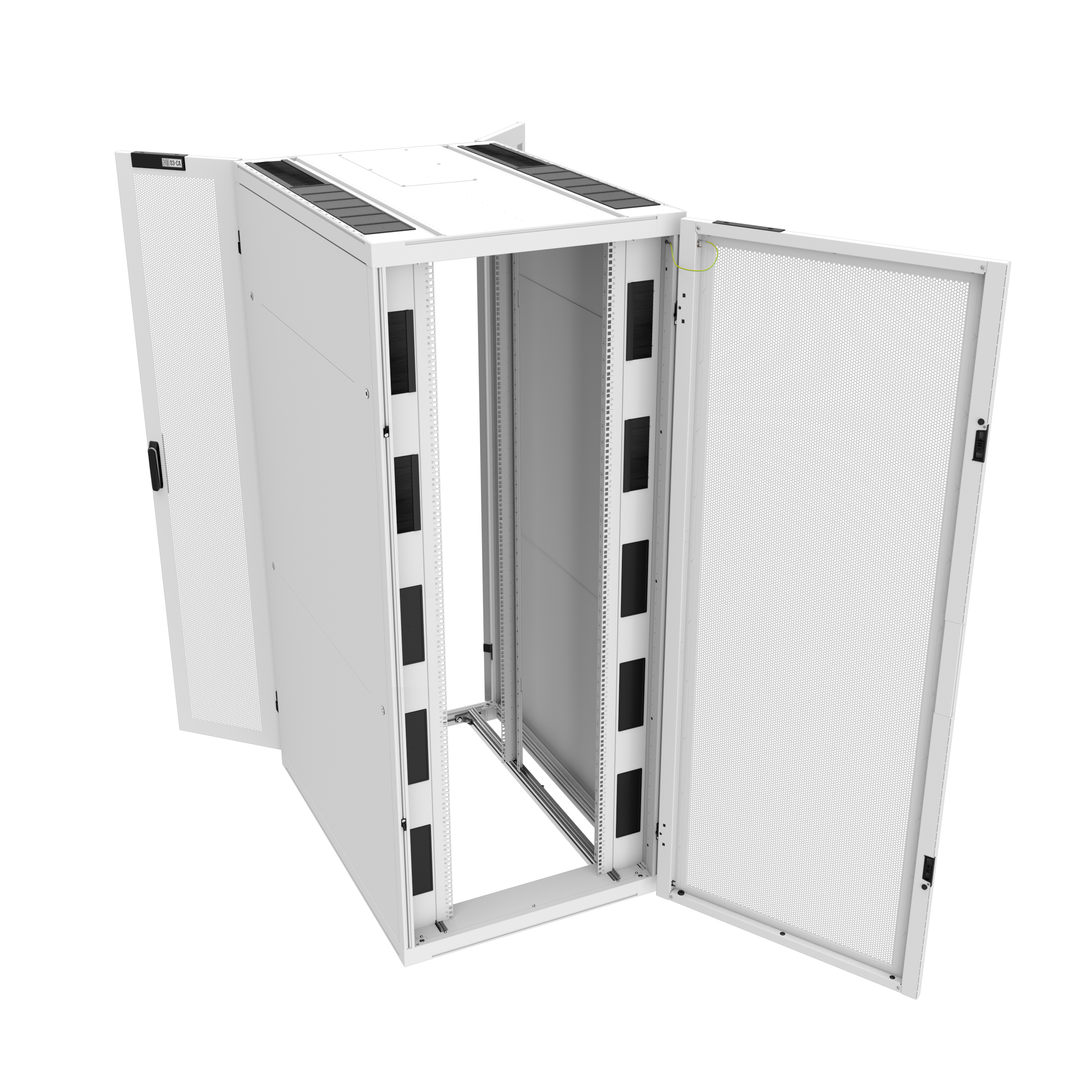CUSTOMEr CASE: Cloud Toscana
Country: ITALY
Cloud Toscana Transforms Italy’s Digital Landscape
Cloud Toscana, or the Tuscany Cloud, is a regional data center designed to provide advanced digital infrastructure and cloud services to benefit both the Tuscan Public Administration, as well as the region’s businesses and citizens. Legrand has supplied key data center infrastructure for the project.

Discover the full story:
Cloud Toscana, or the Tuscany Cloud, is a regional data center designed to provide advanced digital infrastructure and cloud services to benefit both the Tuscan Public Administration, as well as the region’s businesses and citizens. Legrand has supplied key data center infrastructure for the project
The Tuscany Cloud System is the result of a series of initiatives started by the Tuscany administrative region at the start of the 21st century, to develop a regional data center as the foundation for digital service provision. Initially begun as the Tuscany Internet Exchange, the project evolved into the Tuscany Cloud System tender, with the objective of providing the Tuscan Public Administration with three high-speed, interconnected nodes. These are designed to deliver high levels of business continuity, disaster recovery, resilience, and reliability. Such characteristics enable the Tuscan Public Administration to benefit from advanced cloud services and allow Tuscan businesses and citizens to benefit from advanced digital and public services.
The Tuscany Cloud System falls within the framework of Italy’s National Cloud Strategy. As such, the system has been designed to follow the guidelines coming from the National Cyber Security Agency, the Agency for Digital Italy (agID) and the Digital Transformation Department in terms of implementing digital infrastructure for the public administration in Tuscany, for both every day and critical data and services.
The Tuscany Cloud System has been providing many digital services for the region for several years now. These include the interconnection to national platforms, such as Spid, pagoPA (payment interface for the Italian Public Administration), IO (Public Services App), the “Sportello Unico per le attivita produttive system” (one-stop business advisory center) and the platform for online tenders. Many digital services are also provided in the healthcare sector (see box out item).
The design of the Tuscany Cloud System meets three main infrastructure requirements. The first one is availability – a high speed network interconnecting the nodes, enabling high data and service transmission capacities. The second one is resilience – extreme redundancy of the nodes, infrastructure, and facilities that underpin the system. The third one is scalability, providing the possibility of both horizontal and vertical scalability.
To date, there are over 300 organizations using the Tuscany Cloud System, 80 of which have already joined the new cloud mode, accessing a range of new services, with more than two petabytes of data generated so far.
Meeting the challenges of a digital data center
Legrand has supplied a range of data center infrastructure solutions for the Tuscany Cloud System, meeting a range of requirements. These include high availability, resilience and reliability, scalability and flexibility, energy efficiency and monitoring security and safety.
Availability
Several of the Legrand solutions have the high availability threshold demanded by the Tuscany Cloud System. For example, the four Green T.HE Resin transformers feature high efficiency and reliability, guaranteeing service continuity at all times. They also provide simplified installation, operating flexibility, as well as a reduced environmental impact.
Similarly, the Legrand circuit breakers installed in the data center meet both the electrical protection and continuity of service demands, as well as providing precision regulation. This is thanks to the use of cutting-edge electronic protection units and optimised facility supervision communications.
The same criterion of high service availability was behind the choice of nine Legrand Eco cooling units, configured for 2N redundancy and each with a double power supply source upstream.
At the heart of the data center, the Keor MOD UPS system guarantees continuous cooling, thanks to its three-phase power modules and the series of hot-swap batteries. The Keor MOD power module is the smallest 25kW three-phase module on the market. Thanks to its high density and modular design, it allows for up to 250kW configurations in less than a metre of floor space and can scale as required to meet increasing IT infrastructure requirements.
The Keor MOD power module is equipped with control technology based on a System on Chip (SoC) design, which, in a single component, contains a high performance dual core processor, as well as a set of advanced peripherals. All of which adds up to an impressive set of advantages in terms of processing power, speed, and versatility.
Scalability and flexibility
At the core of the Tuscany Cloud System data center is the ‘White Room’, where Legrand solutions provide the scalability and flexibility which are essential requirements for such a challenging project. Starline, Legrand’s maintenance-free busway system, allows the installation of a simplified power supply system, with no wiring in the room. The tap offs can be easily installed along the entire channel without the need to employ specialist electrical staff. And the solution allows for an easy upgrade path of the entire system by adding, replacing, or moving the tap offs with no service interruption.
Energy efficiency
Energy optimisation is now an indispensable requirement for all aspects of data center construction, operation and maintenance. To achieve the goal of creating a truly energy efficient data center, the Legrand Data Center Solutions team adopted a collaborative approach with the data center designers and owners, in order to create the best possible, customised solution for the facility.
The White Room project meets this energy efficiency imperative thanks to a design based on Legrand’s Nexpand platform, with the implementation of a cold aisle solution and cabinets complete with the innovative airflow management capability. The use of this infrastructure enables airflow optimisation while also maximising operational efficiency levels. The Nexpand-based design is also adaptable for different cooling configurations and provides the flexibility required to respond to future, evolving IT demands.
High efficiency is also achieved thanks to the free air cooling system, which allows the White Room to be cooled by using outside air as and when environmental conditions allow. Such operation avoids the use of mechanical compressors.
Monitoring, safety and security
For the distribution of power within the White Room, Raritan Smart PDUs have been specified, the most reliable on the market. The most important component of a smart PDU is the controller. The Raritan PDUs are equipped with the ix7 advanced controller, which features high efficiency processors and high compute power, as well as a series of additional ports, including the gigabit ethernet port which allows multiple PDUs to be connected in cascade. The Legrand/Raritan solution thus allows easy backups and checks on critical parameters such as absorbed power and environmental data.
Reliability is a major feature of the PDUs – the ix7 advanced controller with power sharing is designed to maintain full network connectivity in the event of an issue, providing redundant power to each controller.
Additionally, the PDU control interface can be accessed from both mobile and desktop devices. The interface provides asset management, access control at the rack level, environmental monitoring, and overall capacity management. For the Tuscany Cloud System, the PDU data management is provided by the Power IQ DCIM monitoring software.
While Tuscany, and Florence in particular, might best be remembered as the birthplace of the Italian Renaissance, there is little doubt that this region of tradition, culture, and art has always been one of innovation as well. The Tuscany Cloud System, enabled by key technology partners such as Legrand, is, in its own way, a piece of ‘digital artistry’ every bit as innovative as the works of the region’s painters, sculptures and architects of the past.



